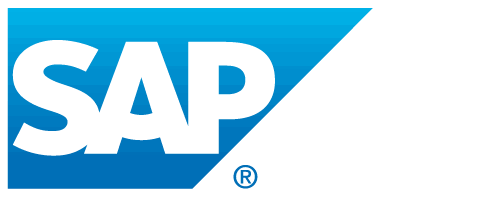This year is already proving challenging for leaders in all industries, including veterinary and pharma. Amid wider market volatility and disruption, the regulatory landscape and competitive environment continues to change and evolve, challenging all stakeholders to adapt and innovate.
These pressures only add to existing difficulties faced by professionals at all levels. The veterinary profession for example, is already suffering from well-documented staff shortages and high rates of burnout. Given these pressures, it’s no surprise that many veterinary leaders feel uncertain about their leadership capabilities. According to research carried out last year by the Veterinary Management Group, more than a third (34%) of current veterinary leaders believe that their leadership skills are only ‘basic’, while a striking 92% of aspiring leaders also rate their skills at this level.
With shifting employee expectations around wellbeing, support and work-life balance, and a more generationally diverse workforce, it’s clear that traditional hierarchical leadership models – where decision-making is confined to a few remote authority figures at the top – are becoming increasingly unsustainable, for employees and leaders alike.
So, what needs to change?
Pivot towards a more collaborative culture
It’s time to rethink leadership. Leaders can no longer be seen as distant decision-makers but must step up in their role as facilitators who harness the expertise of their diverse teams. After all, everyone is working towards the same goal: improved decision-making and ultimately better business outcomes.
My own career journey began in veterinary practice in Australia: a pragmatic, grounded environment, where there was never much of a hierarchy. As a vet, you quickly learn the sometimes-life-or-death importance of clear communication, trust, and teamwork. This approach was deeply ingrained in me, and I carried it with me when I moved into leadership roles within the pharmaceutical sector.
Whether as a practicing veterinarian or a leader of large teams, there has never been a time when I’ve believed I have all the answers. In a room full of diverse experiences and perspectives, everyone in the room has something of value to add; I trust that they can help me make the right decision for the challenge ahead.
My leadership journey took me from hands-on veterinary care to managing technical, marketing, and business teams in the pharmaceutical sector. I’ve been fortunate to have worked around the world, from Australia to Europe, the US and the UK, before taking on my current role as regional president for APAC and Africa at Zoetis. It’s clear that one of the most important lessons I’ve learned about leadership is that the learning never stops!
To me, achieving a position of authority has never been about titles and even less so about enforcing top-down mandates. It's about harnessing the collective input of the team that you lead, to help guide successful outcomes.
Navigate uncertainty with authenticity and curiosity
Authentic leaders inspire trust by acknowledging their challenges and embracing continuous learning. They create environments where employees feel psychologically safe to share ideas, challenge assumptions, and contribute meaningfully. In the current climate, this approach is more important than ever.
The industries we work in are constantly evolving – whether due to regulatory shifts, economic challenges, or rapid technological advancements. Effective leaders must navigate this inherent and increasing uncertainty with resilience and adaptability.
For me, this has meant stepping into roles where I initially felt out of my depth, whether leading technical teams, managing business units, or moving into new markets. The key to navigating these transitions has been curiosity – asking the right questions, actively listening to the answers, and applying new insights to continuously refine my approach. With authority comes responsibility and, to me, great leaders take their responsibility to create environments where teams feel empowered to do their best work seriously.
The future of leadership
Future leaders will be defined not by titles, but by their ability to evolve, learn from setbacks, and foster cultures of openness and authenticity.
As I continue my leadership journey, I remain committed to fostering a workplace culture that prioritises all of the above. By embracing these principles, we can build stronger teams, drive innovation, and create workplaces where people – and businesses – thrive.
Stephanie Armstrong is regional president at Zoetis
Biography
Stephanie Armstrong is regional president at Zoetis, where she leads commercial operations as part of the company’s senior leadership team.
A trained veterinarian and successful business leader, Stephanie encompasses a rare combination of frontline veterinary experience and strategic acumen in the animal pharmaceutical industry, making her uniquely positioned to drive innovation and impact across the animal health sector.
An advocate for positive change with a One Health approach, Stephanie is also deeply committed to supporting the mental health and wellbeing of veterinarians, recognising the unique challenges they face. Stephanie is headstrong in her commitment to breaking the stigma surrounding mental health in the industry, as it is a topic she is particularly passionate about, often talking about this global issue from a thought leadership perspective.
Stephanie is dedicated to advancing the veterinary profession by elevating the voices of industry talent, advocating for vets, and shining a light on the critical challenges faced by both vets and livestock farmers today.
As a member of the Council at The Royal Veterinary College, Stephanie will play a pivotal role in shaping the future of veterinary education and advancing initiatives that bridge the academic and practical applications of animal care.














